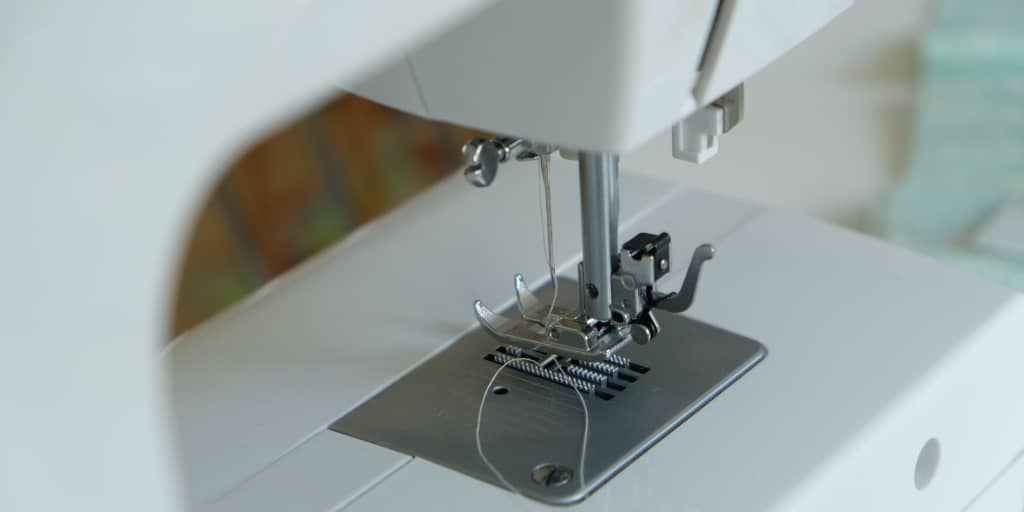Even with air conditioning, the warehouse was never cool. In the afternoon, the sun came through the large windows on the west side, heating the rows of workers until they were tender and limp at the end of the day.
Thanya took two gulps from her water bottle, then selected a small swatch from the heap of material on her left. She chose a scrap of dark blue chambray, probably leftover from a batch of aprons. She wiped a trickle of sweat from her temple, inhaled and bent over the sewing machine. Her eyelids closed as she slipped the fabric under the presser foot. She toed the pedal on the floor while her fingers moved the cloth under the needle’s tooth. Thanya never planned what would be made from a piece of deadstock. Her hands were merely the instrument for the material to transform itself.
The sounds of the warehouse—a jumble of machines and voices—retreated. Thanya heard nothing but the voice of the fabric, its ancestry of individual threads, the field where the fibers were grown. She heard the voices of the women who first wove the fibers into thread, then those who twined the thread into fabric. Thanya could feel the heat and vibrations of those other steamy warehouses.
The swatches she felt strongest were the ones made of animal fibers: the wool from sheep, the hair from yaks. She could smell the crops they grazed on; feel the cycle of storms and sunshine soaked into their coats.
Human-made swatches were unpleasant to handle and troublesome under the needle. Thanya could sense layers of pollution, the violent methods of extraction, the crudeness that covered the original bones that had been fossilized. Natural fibers were luxurious but synthetic fabrics were better for the party clothes, winter wear and other doll fashions that Thanya created: ball gowns for Barbies, superhero capes, Bitsy Baby pajamas.
But today, something changed. The chambray in Thanya’s hand gave off heavy air molecules, wind, animals. She didn’t know what the deadstock had turned into until the foreman, a red-headed man with small pale hands, appeared beside her. When she looked up from her machine, all the other stations were empty. Through the windows, Thanya saw the lights in the parking lot come on in the dusk.
What is this? the foreman asked.
He took it in two hands and held it up. Thanya realized it was a mask, like doctors wore in surgery. She’d sewn on long scraps of facing to use as ties. She motioned for the foreman to put the mask on his face.
She frowned. The ties are too clumsy, she whispered. Thanya pushed out her chair and walked to the remnant wall. She carried a bin of elastic pieces back to her station.
The foreman watched Thanya divide the deadstock into two piles: cotton and everything else. Velvet, chenille, fur and tulle weren’t useful for masks.
Bring me cotton, she told the foreman.
What are we going to do with masks? He asked.
We’re getting ready, she said.
The supervisor brought out bins of cotton and made a fresh pot of coffee. Thanya sewed long into the night, feeling a race against time.


LOVE THIS STORY!!!!